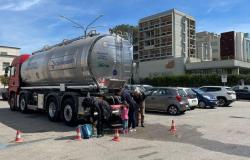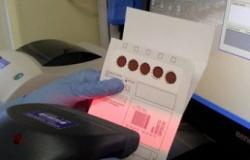After the stages in Rome, Palermo and Milan, the conference “One Health: one health and one science” organized by Hps-AboutPharma and MSD Animal Health, will also arrive in Padua on June 20th. Appointment at the Best Western Plus Hotel Galileo, Europa room in via Venezia 30: we will talk about zoonotic diseases transmitted by vectors (e.g. mosquitoes, ticks, sandflies, etc.), the factors that contribute to their expansion and the activities implemented for the their control and prevention with a focus on the Veneto Region (here is the program of the day and the link to register).
A public health problem
Vector-borne diseases are now considered a public health problem, considering that they represent approximately 17% of total cases of communicable diseases and cause over one billion human cases and one million deaths every year, according to data from the World Health Organization. healthcare (WHO). The future scenario does not promise well. In fact, ongoing climate change impacts the physiology, life cycle and geographical distribution of vectors and reservoir species, influencing the appearance and increase in prevalence of climate-sensitive diseases. An example of this is Dengue which, in South America, reached a record number of cases in 2024 and is also starting to appear in Italy. Last year alone, 84 indigenous cases were recorded, making our country the first in Europe for the number of cases. Among these diseases there is also leishmaniasis, transmitted through the bite of sandflies or sandflies, insects similar to mosquitoes but smaller than the latter and present throughout the national territory, and Lyme disease, transmitted by the bite of the tick Ixodes ricinus or “woodland tick”.
The One Health approach
So what to do? To control and contain vector-borne zoonotic diseases, it is necessary to build a solid monitoring and prevention system based on collaboration between institutions and on close interprofessional synergy – from a One Health perspective – between the human medicine sector (emergency room doctors emergency medicine, internal medicine, GPs, infectious disease specialists, hygienists, pediatric dermatologists, geriatricians) and veterinary medicine (self-employed veterinary doctors and prevention departments of healthcare companies), without forgetting the support of other professional figures such as biologists who deal with entomological surveillance and parasitologists.
The criticality of Veneto
The Padua event, like the previous ones, will also put the main stakeholders involved at the same table, to delve deeper into the status quo of some diseases transmitted by arthropod vectors in Veneto – leishmaniasis and tick-borne diseases – analyzing both the epidemiological, environmental and climatic aspects and surveillance and containment measures. Veneto, like the other regions of the north-east, is in fact an area particularly at risk for tick-borne diseases, in particular Ixodes ricinus vector of Lyme disease and TBE. In recent years, the increase in average temperatures recorded during the winter months has reduced the inactivity period of ticks, anticipating their appearance. Ixodes ricinus performs a winter diapause remaining protected under vegetation, stones or even under snow. As soon as temperatures reach 7-10°C the search for the host on which to carry out the blood meal begins.
In Padua we will also discuss the regulatory framework for the prevention and control of transmissible animal diseases and the training of clinicians and veterinarians to improve their diagnosis and containment. Cases of good practice and virtuous examples of inter-institutional and inter-professional collaboration for health prevention and prophylaxis will also be presented.
What will we talk about
In detail Luca Lazzarini (San Bortolo Hospital in Vicenza) will take stock of the Italian situation with respect to vector-borne diseases; Fabrizio Montarsi (Izs delle Venezie di Padova) e Rudi Cassini (University of Padua) will talk about the “vector journey”, therefore the biology of vectors and the factors that impact their distribution. TO Renzo Scaggiante (San Martino Hospital, Belluno) e Giulia Simonato (University of Padua) the task of illustrating the “patient journey in animals and humans”, i.e. the mode of spread, symptoms, diagnosis and prevention of leishmaniasis and tick-borne diseases.
In the final round table, Davide Gentili (Veneto region), Laura Favero (Veneto region), Biancamaria Fraccaro (Simg Veneto Region) e Gianluca Obaldi (Order of veterinary doctors of Belluno) will instead discuss the surveillance and monitoring activities implemented at regional level and the collaborations necessary for the prevention, containment and control of zoonoses, also in light of virtuous examples and cases of good practices. The in-depth study on the theme of One Health will continue in the coming months with other moments of regional discussion on the Italian territory.






